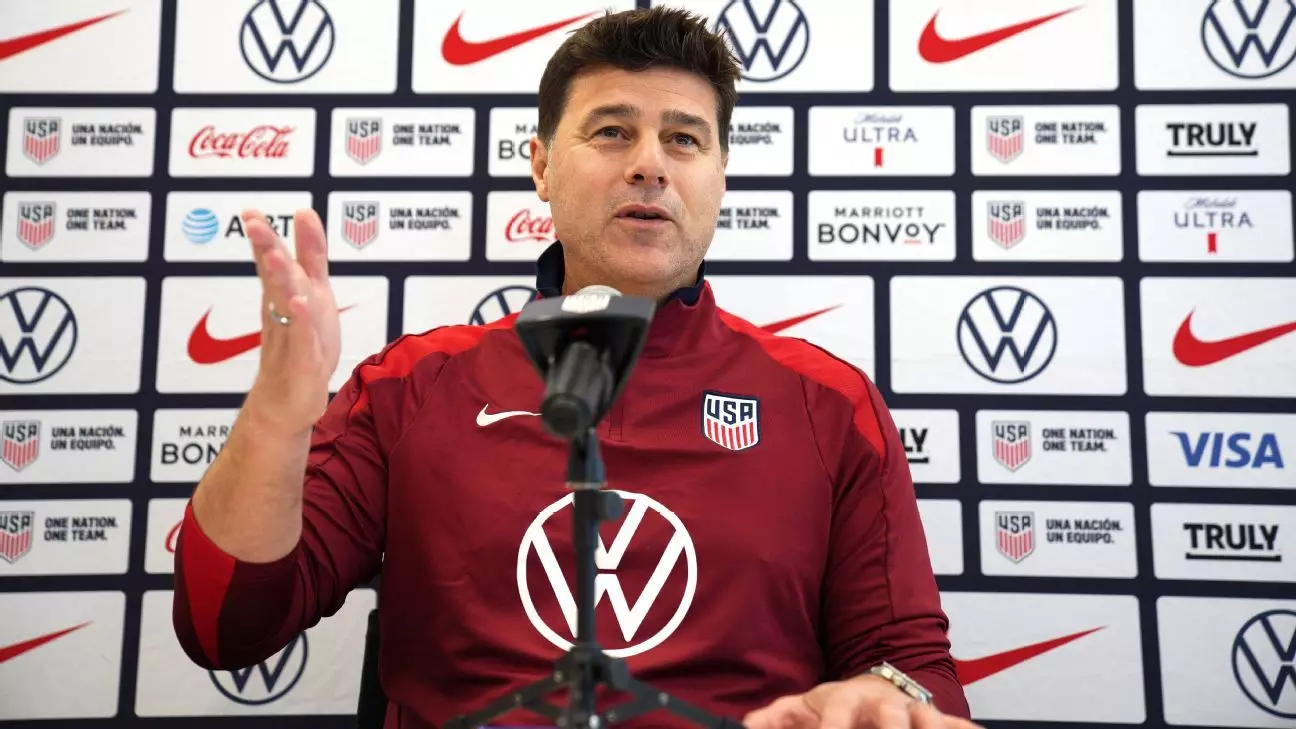Christian Pulisic has become an integral part of AC Milan’s offensive strategy this season, showcasing remarkable talent by netting six goals and providing two assists in just nine appearances. His resurgence in Serie A has sparked discussions not only about his individual prowess but also regarding the potential pitfalls of his workload. Pochettino’s revelations during a recent press conference reveal an underlying concern that could affect both Pulisic’s longevity and the United States Men’s National Team (USMNT)’s competitive edge moving forward.
After struggling to find consistent playing time at Chelsea, Pulisic’s transfer to AC Milan has become a turning point in his career. The winger is experiencing a rejuvenation on the field reminiscent of his early days in the Bundesliga. Pochettino described him as “one of the best offensive players in the world,” highlighting the importance of Pulisic’s form to both club and national team. However, it is crucial to understand that with great talent comes a hefty expectation. As he continues to thrive, the need for balance becomes increasingly important.
In a mission to safeguard Pulisic’s physical integrity, Pochettino emphasized the necessity of managing his workload. The concern arises from the dual pressure of club commitments and international responsibilities. Many players have faced burnout from excess game time, and this worry echoes through the coaching staff of the USMNT. As Pulisic adjusts to being a focal point for Milan, how he copes with this stress could be a defining factor in his performance for the national team.
Mauricio Pochettino is no stranger to high-stakes management; his tenure at clubs like PSG and Tottenham was marked by tactical innovation and adaptability. Now, as he prepares for his debut matches as head coach of the USMNT, there’s a palpable sense of responsibility to foster a cohesive team identity while allowing room for individual brilliance. The emphasis Pochettino places on understanding players’ needs reflects not just tactical acumen but a nurturing approach that can enhance morale among the squad.
His assertion that “soccer is about to compete and to win” acknowledges the results-oriented nature of the sport, yet his realistic outlook recognizes that building a rapport among nearly 40 team members cannot be understated. Establishing a foundation based on communication and trust is essential for any successful campaign, making this initial camp a pivotal time for all involved.
Switching coaching regimes often brings an immediate challenge for players. Pochettino’s intensity in training has highlighted the importance of mental resilience in adapting to new strategies and playing philosophies. The adjustment is not merely physical; it’s a reshaping of the collective mindset. Pochettino wisely understands that demanding too much too soon could stifle creativity and confidence.
Flexibility in his tactical approach indicates Pochettino’s commitment to not just imposing his ideals but rather molding to the strengths of the current players. His humorous outlook—that he prefers to “live” rather than “die” by his philosophy—offers a refreshing perspective on strategic planning. Adaptation is key; if players feel comfortable and valued, they are more likely to express their skills, leading to stronger overall performances.
Navigating the early stages of his tenure, Pochettino’s focus centers on integrating players harmoniously while also addressing pressing issues such as Pulisic’s workload. Balancing the demands of club versus country will be one of the head coach’s pivotal challenges in the coming months. It is essential for both Pulisic and the team that he remains injury-free and in good spirits—a challenge that may become increasingly difficult as the season progresses.
Moreover, the friendlies against Panama and Mexico will serve as a litmus test for Pochettino’s strategies and the players’ adaptability. Success in these matches not only provides valuable experience but also builds confidence ahead of more critical competitive fixtures. The road ahead is filled with promise for both Pulisic and the USMNT; however, the upcoming trials will reveal how well they navigate the complexities of expectations, individual roles, and cohesive team dynamics.
As Christian Pulisic shines in Italy, the shadows of workload and expectation loom. The decisions made now by Pochettino and his staff could shape the future not only of Pulisic but also of American soccer as they look to achieve success on larger stages. The balance of nurturing talent like Pulisic while instilling a competitive spirit in the squad will be key themes as the USMNT strives for greatness.

Leave a Reply